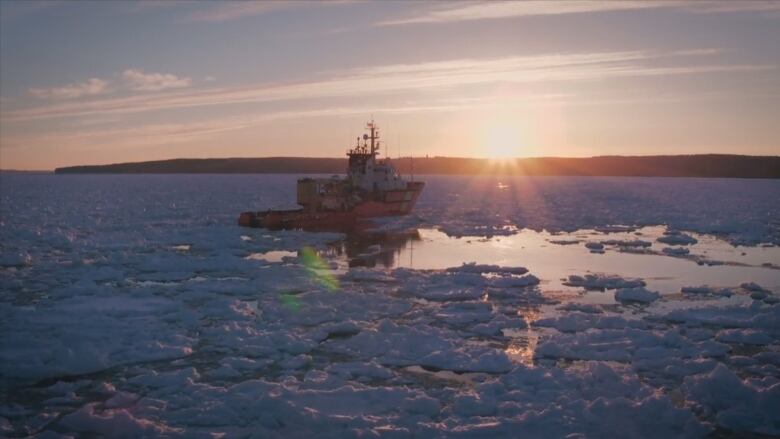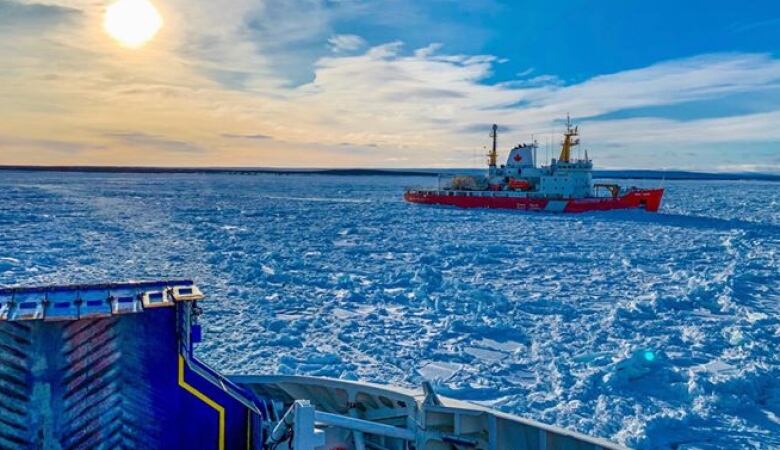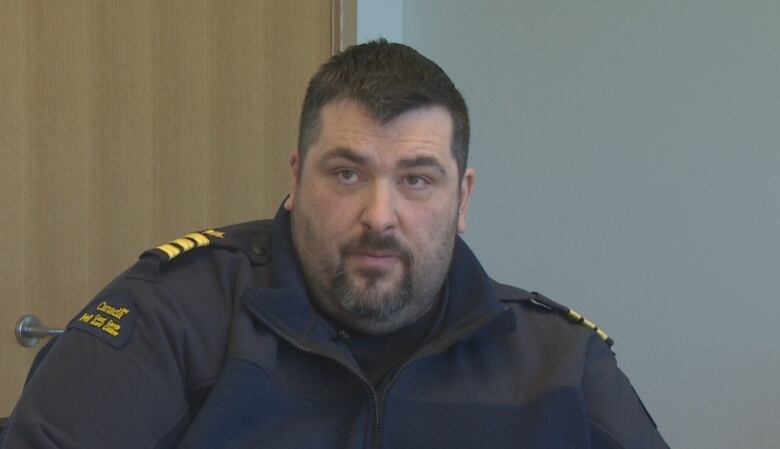Annual battle of coast guard vs. ice gets underway in N.L.
Icebreaker Henry Larsen escorting the Qajaq W in the Strait of Belle Isle

The Canadian Coast Guard has started its annual fight with ice in the waters around Newfoundland and Labrador.
On Tuesday, the icebreaker Henry Larsen began escorting the Qajaq W, whichtravels from the Northern Peninsula to southern Labrador,through sea ice.
"We'll see how it goes over the next few days. We'll probably be there for awhile," said Bradley Durnford, the Canadian Coast Guard's superintendent of icebreaking operations in the Atlantic region.

Last year the coast guardbattled ice in the Strait of Belle Isle for months, also beginning in early February.
"That was horrendous, what we saw," said Durnford. "We saw the 30-foot ice walls on shore because of those sustained westerlies squeezing every little bit of ice in the Gulf of St. Lawrence through that little passage."

Coast Guard officialsin St. John's say ice arrived later than usual in Newfoundland and Labrador this yearand icearound the province is lighter this monththan it was in early February 2019.
"This year we've had 30 taskings, compared to 40 last year, which is not really significant. It's just because we had a milder December so we had a slower start to the season," said Durnford.
Ice concentration changing
It's impossible to say what the coming winter and spring weather will bring this year but coast guard officialssay that over the long term there has been a marked trend towards less ice.
A bad ice year now may be onlyan average ice year 30 years ago.- Bradley Durnford
"We do see a reduction in overall ice concentrations in the Arctic and the East Coast from 30 years ago," said Durnford.
"What we know now as normal is less than what it was 30 years ago. A bad ice year now may be only anaverage ice year 30 years ago."
That doesn't mean the coast guard's job is getting easier. More open water means more ocean traffic, particularly as Canada's Arctic watersopenup, and more traffic is expected tomeanmore demand for Coast Guard services.












_(720p).jpg)


 OFFICIAL HD MUSIC VIDEO.jpg)
.jpg)



























































































